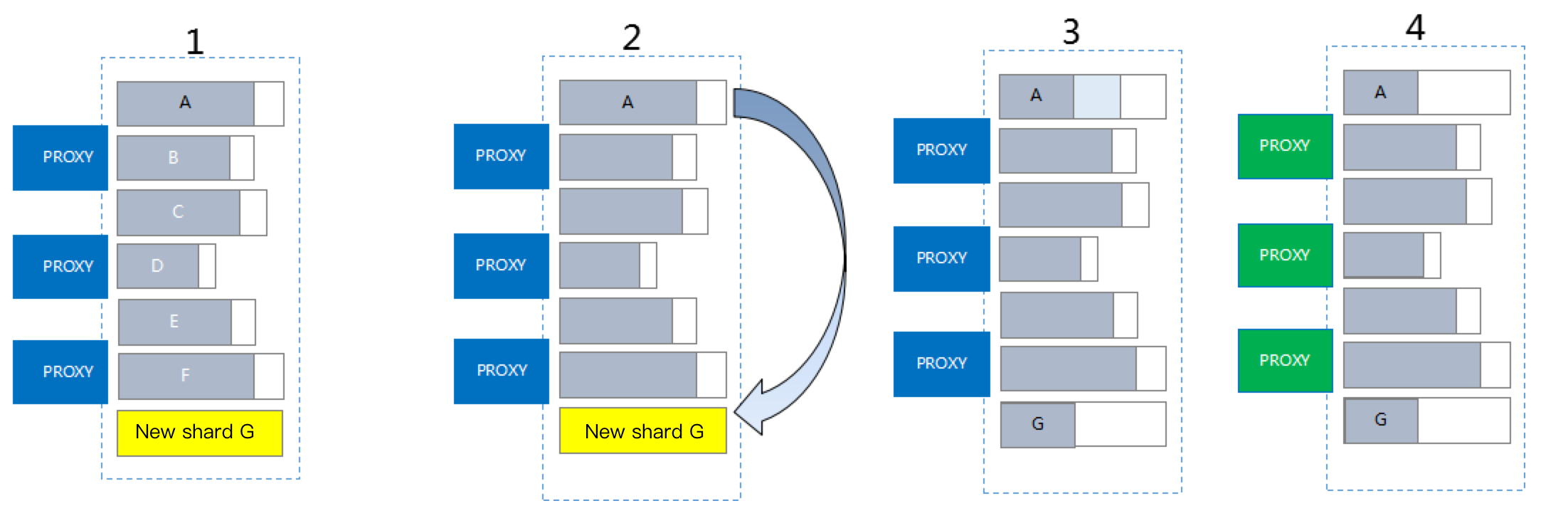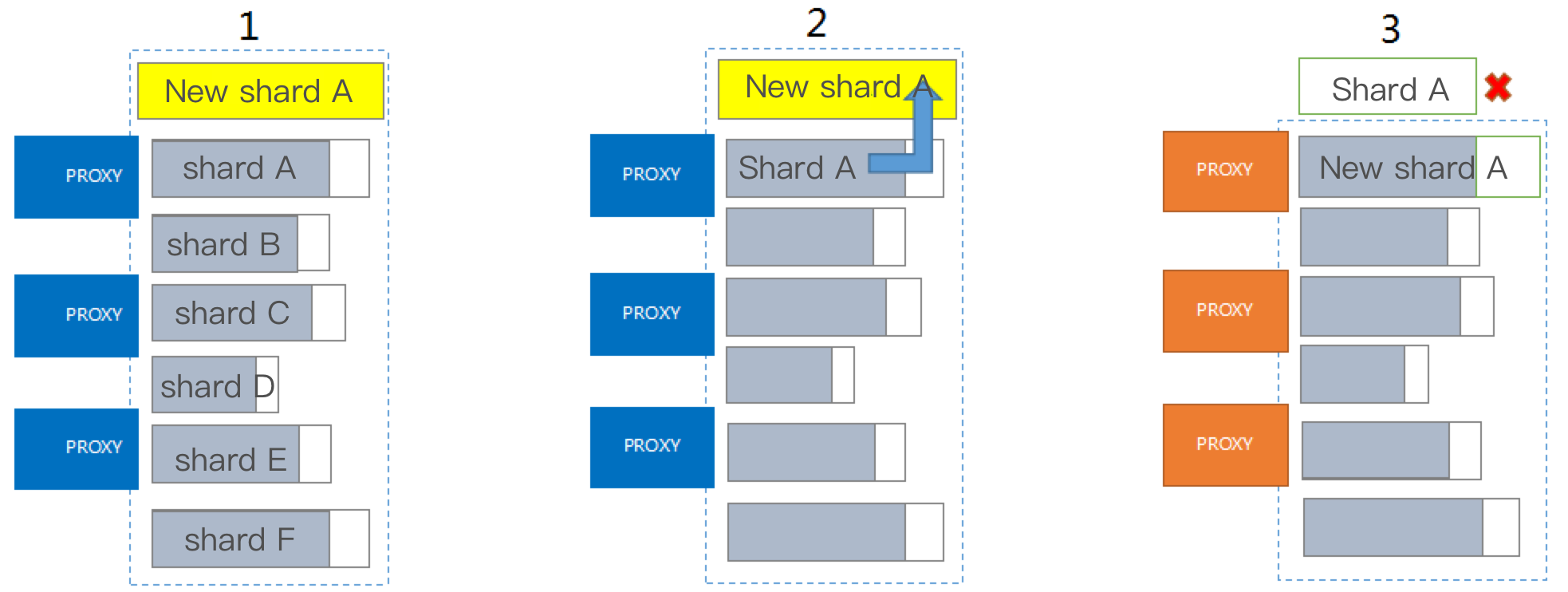弹性扩展
最后更新时间:2024-01-06 12:25:44
概述
TDSQL MySQL 版支持在线实时扩容,扩容方式分为新增分片和现有分片扩容两种方式,整个扩容过程对业务完全透明,无需业务停机。扩容时仅部分分片存在秒级的只读或中断,整个集群不会受影响。
扩容过程
TDSQL MySQL 版主要是采用自研的自动再均衡技术保证自动化的扩容和稳定。
新增分片扩容
1. 在 TDSQL MySQL 版控制台 对需要扩容的 A 节点进行扩容操作。
2. 根据新加 G 节点配置,将 A 节点部分数据搬迁(从备机)到 G 节点。
3. 数据完全同步后,A、G 节点校验数据库,存在一至几十秒的只读,但整个服务不会停止。
4. 调度通知 proxy 切换路由。


现有分片扩容
基于现有分片的扩容相当于更换了一块更大容量的物理分片。
说明:
基于现有分片的扩容没有增加分片,不会改变划分分片的逻辑规则和分片数量。
1. 按需要升级的配置分配一个新的物理分片(以下简称新分片)。
2. 将需要升级的物理分片(以下简称老分片)的数据、配置等同步数据到新分片中。
3. 同步数据完成后,在腾讯云网关做路由切换,切换到新分片继续使用。


相关操作
文档反馈

